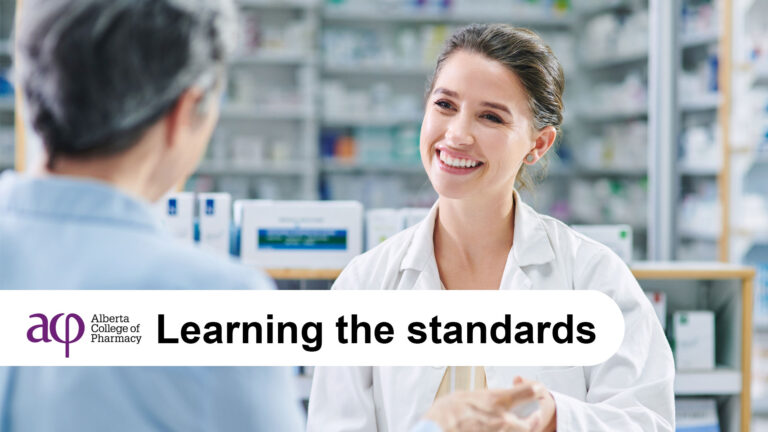
Providing care to companion animals has traditionally been a small part of the practice of many pharmacy teams. Additionally, federal legislative changes in 2017 generated interest in pharmacies providing services for animals that enter the food chain. As a result, in 2022, ACP updated our Standards of Practice for Pharmacists and Pharmacy Technicians (SPPPT) and Standards for the Operation of Licensed Pharmacies (SOLP) to support regulated members who provide professional services to this unique group of patients. The enhancements made to the current standards in 2022 have been included in the new SPPPT and SOLP. This article reviews those updates from 2022 and reminds regulated members about their existence in the new standards.
In general, all standards are to be applied equally to all patients, whether animal or human. ACP recognizes that pharmacists and pharmacy technicians are not animal health experts and, throughout the standards, animal-specific concepts and limitations on the practice of regulated members are described where applicable.
ACP’s new standards—to take effect on February 1, 2025—also specifically address providing care to animal patients.
Key considerations
Regulated members should note the following in the interpretation section of the new SPPPT and SOLP that have been carried over from the current standards and are to be applied throughout the entirety of the new standards:
- When a patient is an animal, all duties under these standards that contemplate communication from a patient, or that require communication with a patient, must be read as requiring communication from or with the patient’s agent.
- When a patient is an animal, all duties under these standards that contemplate when an animal may enter the food chain must be read to include an animal or any animal products that may enter the food chain for human consumption.
The consideration of animals that might enter the food chain required some new concepts be added to the standards. This included herds of animals as patients, drug residues, and drug withdrawal times. These concepts have carried over into the new standards.
Limitations and differences when providing care to animals
As with the current SPPPT and SOLP, the new standards identify the same limitations and differences in the scopes of practice of regulated members when providing care to animal patients. With these limitations, it is expected that the pharmacist will need to extensively collaborate with veterinarians when providing care to animal patients.
First, a pharmacist must only engage in services for animals that the pharmacist is competent to perform, that apply to a pharmacist’s practice, and are limited to compounding, dispensing, and selling drugs for animals. Pharmacists are not permitted to prescribe drugs for animals at initial access, in an emergency, or to manage ongoing therapy. Pharmacists may only adapt a prescription for an animal from another prescriber by renewing the prescription to ensure continuity of care. Dose changes and therapeutic substitutions are not permitted for animal patients.
Also, a pharmacist must not provide an animal a service that requires an assessment by a veterinarian, including selling a Schedule 2 drug without a prescription or recommending a Schedule 3 or non-scheduled drug.
Regulated members are not permitted to administer an injection to a patient that is an animal. Further, regulated members are not permitted to insert or remove instruments, devices, or fingers beyond the anal verge or beyond the labia majora. This would include activities like administering a suppository to an animal.
It is important to remember that these standards in no way require regulated members to provide professional services for animals. They were developed to provide direction and support those regulated members who serve or are considering serving animals as patients.




